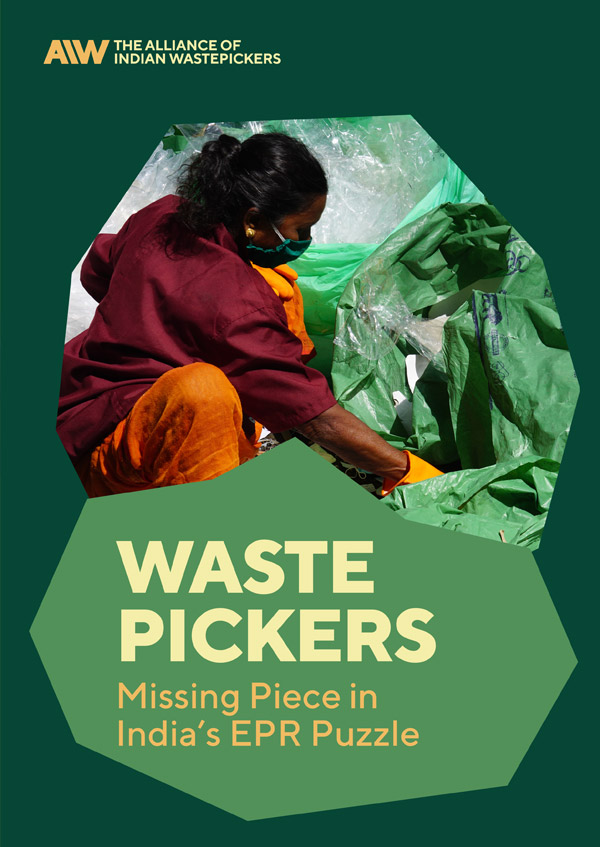"Extended Producer Responsibility (EPR) is a relatively new concept that has gained traction in India as a means to enhance the management of plastic waste. EPR places the responsibility for a product's entire lifecycle squarely on the shoulders of commercial waste producers. On the surface, EPR seems to hold great promise, offering numerous potential benefits for waste pickers. However, this report delves into the practical implementation of EPR and its profound impact on the lives and livelihoods of waste pickers, shedding light on critical issues and the real-world implications of EPR in India.
Unsung Heroes: Waste Pickers and Informal Actors
India's waste pickers form a critical and massive component of the country's waste management ecosystem. According to the International Alliance of Waste Pickers (IAWP), informal waste pickers are responsible for collecting a staggering 60% of the world's plastic destined for recycling. Notably, waste pickers possess traditional knowledge in waste handling that can significantly bolster the effectiveness of EPR, especially at the grassroots level.
The Neglect of Waste Pickers
Unfortunately, the EPR guidelines in India not only exclude waste pickers but also disregard their substantial contributions to waste management. Despite the Union Ministry of Environment, Forest and Climate Change's 2016 Solid Waste Management Rules explicitly mentioning the integration of waste pickers, informal waste workers, and waste dealers into solid waste management, the intrusion of private contractors threatens waste pickers' autonomy in waste management.
EPR: Opportunity and Threat
For waste pickers, who rely on plastic for a significant portion of their income, EPR presents both an opportunity and a threat to their livelihoods and organizations. Integrating waste pickers into the EPR system could create new prospects and facilitate a just transition. However, it is paramount to acknowledge their historical contributions to waste management and recycling within a comprehensive EPR policy.
AIW: Advocates for Inclusion
Given that EPR significantly impacts plastic waste management, which is central to waste pickers' livelihoods, the Alliance of Indian Waste Pickers (AIW) undertook a study to examine the engagement of waste picker organisations with EPR in India. The alliance strongly believes that understanding the perspectives of waste pickers and other informal actors is essential as they are key stakeholders in the recycling chain. Unfortunately, they have been overlooked in EPR policy and other policies in India, leading to their invisibility
The study conducted between February and March 2022 was influenced by the report that the International Alliance of Waste Pickers (IAWP) created to illustrate their position on EPR in October 2021. The Alliance of Indian Waste Pickers (AIW) aims to gain a comprehensive understanding of the specific difficulties encountered by waste pickers in relation to EPR implementation, with a focus on urban areas of India. Additionally, the study seeks to evaluate the current level of integration of waste pickers within the extended producer responsibility framework."




